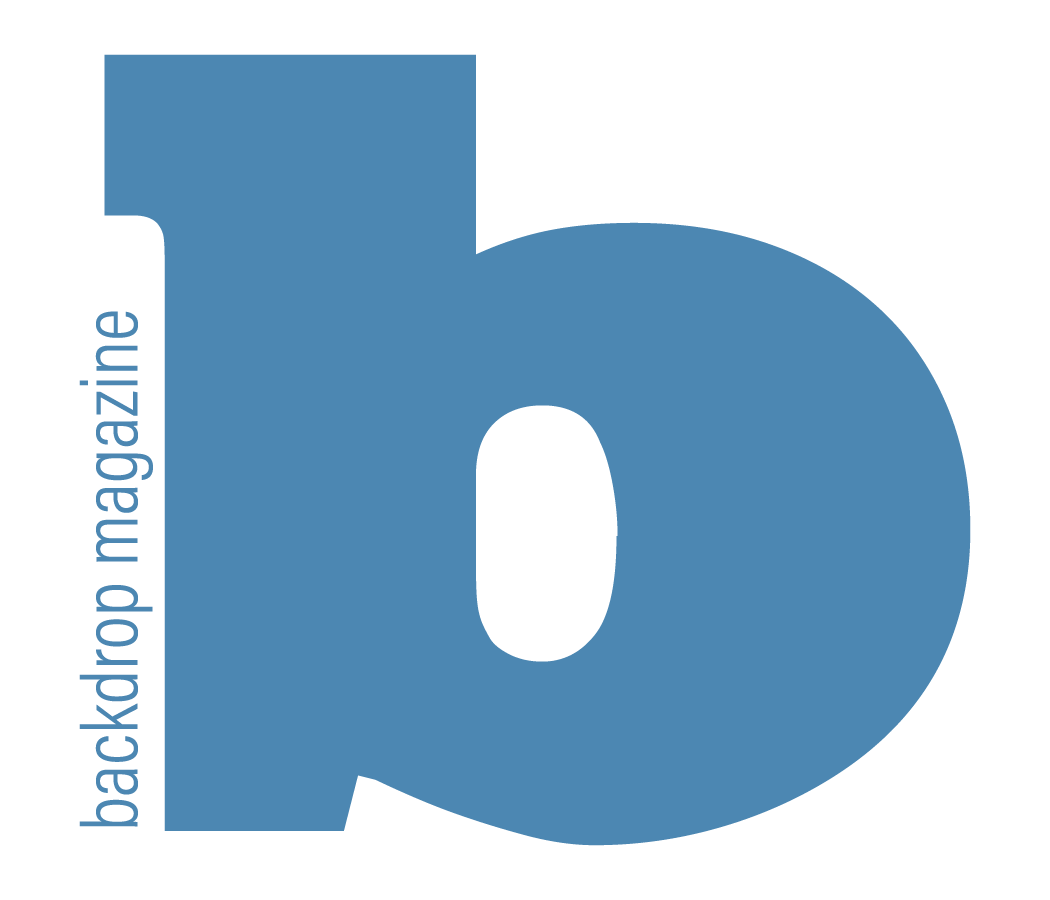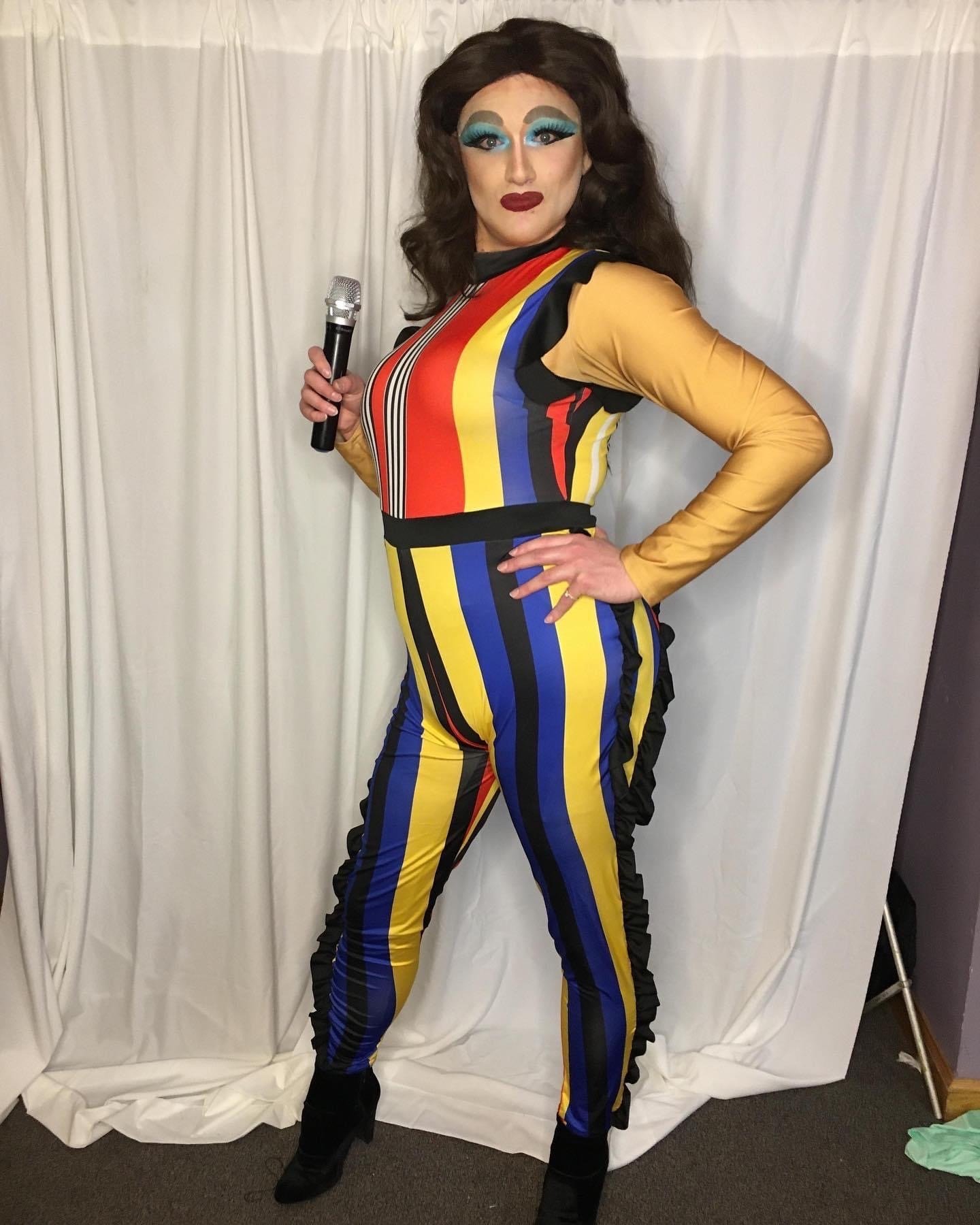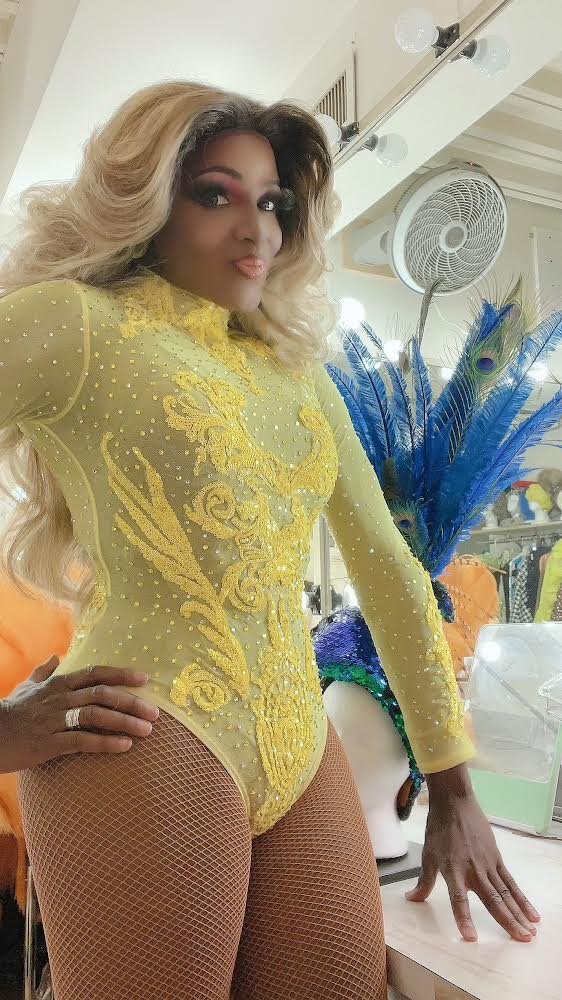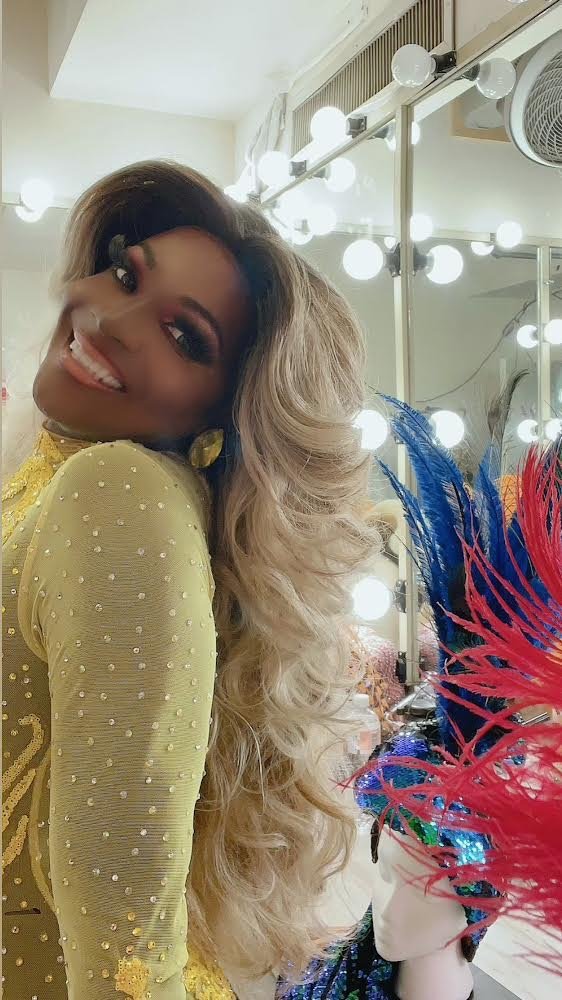Athens: A Community for Queens
Story by McKenna Christy
“
Drag is a mirror.”
-ShaVaughn “Pop” Peterson
Photo: Chris Nevil in drag to perform as Kazma Knights
Makeup, fashion, singing, acting and dancing are all individual arts, yet when combined, they create an important form of entertainment valuable to many communities: drag. Art and entertainment are often viewed separately, but drag and drag performers prove the two go hand in hand.
Drag cannot be confined to one definition because every performer appreciates different aspects the art has to offer. Drag can also not be limited to the gender binary.
“To suggest there’s only two binary ways of doing drag is to suggest that western beauty standards, and cultural ways of acting like a man or woman, are the only forms of gender expression,” Dani Weber, a nonbinary drag performer who wrote a piece on gender and drag for Archer Magazine, says.
Typically, drag is a type of performance where people lip sync to songs, dress in extravagant outfits and put on lavish makeup or accessories. But the origin stories of three drag queens who have had an impact on the Athens community prove that drag can be inspired by anything and come from anywhere.
ShaVaughn “Pop” Peterson’s mom was in the military, and so they never lived stayed in the same state very long growing up. Although Peterson was constantly moving until they graduated high school, it was never this drag queen’s plan to end up in Athens.
“Back in 2014, I was a regular with the Gay Geeks of New York and I went to a New Year’s hangover party and (at) two o’clock in the morning these two gorgeous men walk in. I wind up making out with one, I wind up making out with the other. It doesn’t start a fight, and I wind up in a polyamorous relationship,” Peterson says.
After nine months of a long-distance relationship, Peterson visited Athens for the first time.
ShaVaughn “Pop” Peterson performing at a show.
Photo provided by Peterson
“I’m supposed to be there for two weeks, and I wind up there for almost four years,” Peterson says.
Not only was Peterson involved with the Athens community, but they were also mistaken for an Ohio University student. Due to their theater background, Peterson found themself apart of OU’s Lost Flamingo Theatre Company.
“I was Lurch in The Addams Family, I was in Honk, I was a member of the Singing Men of Ohio. I was very involved in the Athens art community. I cherished my days in Athens, and I speak of Athens very fondly,” Peterson says.
Their first drag performance in Athens was to “S&M” by Rihanna. Peterson recalls the outfit for that performance was a bikini. The package the bikini was in was at Peterson’s house in Athens before they even moved in, and their boyfriends had decided to keep it. Without a doubt, Peterson knew they would wear the bikini for their performance.
“And so, I swept all my hair up into like this spike for Rihanna’s “S&M” and like, when you give the people what they want, it brings the frickin’ house down,” Peterson says.
The bikini might seem like a coincidence, but its mysterious presence showing up at Peterson’s door may have been fate. An aspect of Peterson’s drag career that was done very purposefully, however, was their name choice.
“If I have the luck to become famous, I want to be like RuPaul in that the name that is made famous is my own. When I picked my drag name I said ‘Bitch, we’re using my name, my name is fantastic,” Peterson says.
Their past of constant travel and temporary stays in new places also contributed to Peterson’s choice in making their real name their drag name.
“I got moved around a lot; I was often the new kid in class. The number of times a teacher would be like, ‘Oh we have a new girl in class, ShaVaughn raise your hand.’ I’d be like ‘Hi.’ This was like me reclaiming that,” Peterson says.
Just about every entertainer and artist has a favorite performance that they long for to experience again. For Peterson, this performance was at a house show in Athens. Their friend asked them to headline the party as a drag performance, which Peterson decided to call, “Evolution of a Diva.”
“One of my favorite bands is Scott Bradlee’s Postmodern Jukebox [and] they do a cover of “Creep” by Radiohead that I just fucking adore. And I took that number, and I was in ripped fishnets and full body fishnet.” Peterson says.
The show was emotional for Peterson, who explains how much of themself they put into making the performance it a show-stopping performance.
“I poured my soul into that number, like I cried during that number. You know, the wig comes off and like I was in a room full of people who get it, and we had like a full fucking moment together,” they say.
Since the show was not on a stage in front of a large crowd, that was what made the performance even more momentous.
“There’s no recordings of it, like it disappeared into the ether, you either were there or you weren’t. And it’s kind of sad like you know it doesn’t exist forever, but that’s also what kind of makes it special. That show will always have a special place in my heart,” Peterson says.
Drag has a way of getting intriguing people of all different life experiences. To Martin Cooper, whose stage name is Coco Montrese, drag was one of two things that saved his life.
Martin Cooper in drag to perform as Coco Montrese. Photos provided by Cooper
Cooper was a contestant on season five of RuPaul’s Drag Race and was crowned Miss Gay America in 2010 as Coco Montrese. Cooper headlined a drag show at OU for the 2021 Welcome Week, but drag was not his initial career choice, and how Cooper came to be such an influential performer inspires many.
“I started drag back in 1992 [when] I was in college, and I was trying to find something that I could do that I wouldn’t have to call home for money,” Cooper says. “So, me starting out in drag was not a part of my career, it was just supposed to be a stepping stone.”
Cooper was in college studying pre-law, yet his side job turned into a real passion. Cooper talked to his parents and switched to studying theater.“
“Theater was good for me but there was still more I wanted to do,” Cooper says.
After college, Cooper went back home to his parents, who both died due to cancer less than a year apart. Drag and performing helped Cooper grieve and cope.
“I just threw myself into drag completely and that’s what kinda got me through those traumatic life experiences. So, it was one of those things where it was just a complete outlet for me,” Cooper says. “Any emotions that I had, if I was angry, if I was sad, if I was happy, I could literally go through a catalog of songs and find something that could relate to what I was feeling, and I could perform it.”
Cooper grew up in Miami, and after the death of his parents, moved to Orlando, Florida, Florida, to audition for Walt Disney Entertainment as a performer. Out of about 700 auditioners, Disney hired Cooper. “They said, ‘You didn’t know any of this choreography, you didn’t know anything, but you kept smiling and your facial expression is captivating, we cannot stop looking at you. So, we’re gonna go ahead and give you the job, and we want you to work hard.’ And I did, and I stayed at Disney for 11 years,” Cooper says.
Performing down Main Street was a childhood dream of Cooper’s. His parents were the ones who originally brought him to Disney.
“My dad was like, ‘I’m gonna leave you here because you belong here. This is perfect for you.’ And how ironic that when they passed away, that’s where I ended up,” Cooper says.
Although Cooper was busy performing at Disney, he still had time to do drag performances outside of the theme park. After leaving Disney, Cooper became a performer in Las Vegas, and currently does shows there. Cooper is also invited to do shows everywhere, which is how he ended up in Athens during Welcome Week.
“With COVID and everything like that it was just a great experience to actually be amongst people again and people enjoy you and enjoy what you do. And when they say drag brings people together, it really does,” Cooper says.
There are usually some people in an audience of a drag performance who are not sure how to act during a show. Cooper was performing as Montrese performing on south campus at OU when Montrese noticed there were people in the audience that who were less familiar with drag.
Cooper wants people to know drag is for everyone and engaging in performances is fun and acceptable.
“I’ve been around a long time so I can tell when people are comfortable and trying to break the ice and include themselves with other people. And I watched as the audience came around, they were really like really intrigued and wanted to see what was going on. They kind of had to play it off like ‘Oh yeah we’re having a good time,’ but they were really into it,” Cooper says.
Cooper believes the best way to help people be more comfortable involving themselves in drag shows is to showcase drag more. Athens has its own community of drag, which is organized and maintained by Chris Nevil, whose drag name is Kazma Knights.
“My performance style is mostly comedy,” Nevil says. “No deaths drops from this gal, but some dirty humor for sure,” Nevil says.
Chris Nevi in drag to perform as Kazama Knights. Photo provided by Nevil
To Nevil, drag has given him an outlet outside of his career in finance, as well as opportunities to raise money for different organizations through performances and other events.
“It has added a philanthropic piece as well by giving me the opportunity to raise money for various organizations including the Southeastern Ohio Rainbow Alliance (SEORA), of which I’m the Executive Director for, Athens County Board of Developmental Disabilities and more,” Nevil says.
Nevil has been doing drag for over more than three years and was inspired to start due to a desire to experience something new and “invigorating.” Ever since, he has been a driving reason behind why drag’s presence in Athens exists today.
“I run all of the drag shows in Athens at the various locations, with the exception of ones directly ran by the university, but I’m usually still invited to perform in those as well. Shows include fundraisers at Eclipse Company Store, The Union, Athens Uncorked, and more,” Nevil says.
No matter which community drag takes place in, it is a valued form of art and entertainment. These three drag queens have left a mark on Athens and exemplify what it means to persevere through life’s challenges using performance art.
“Much like art in general, drag is a reflection of our greater society; drag is a mirror. The problem is the mirror shows a different reflection to everyone who’s holding it,” Peterson says. “And for so long, people like us, weren’t allowed, couldn’t afford mirrors. And so, drag is important because it finally provides a voice to the voiceless.”





